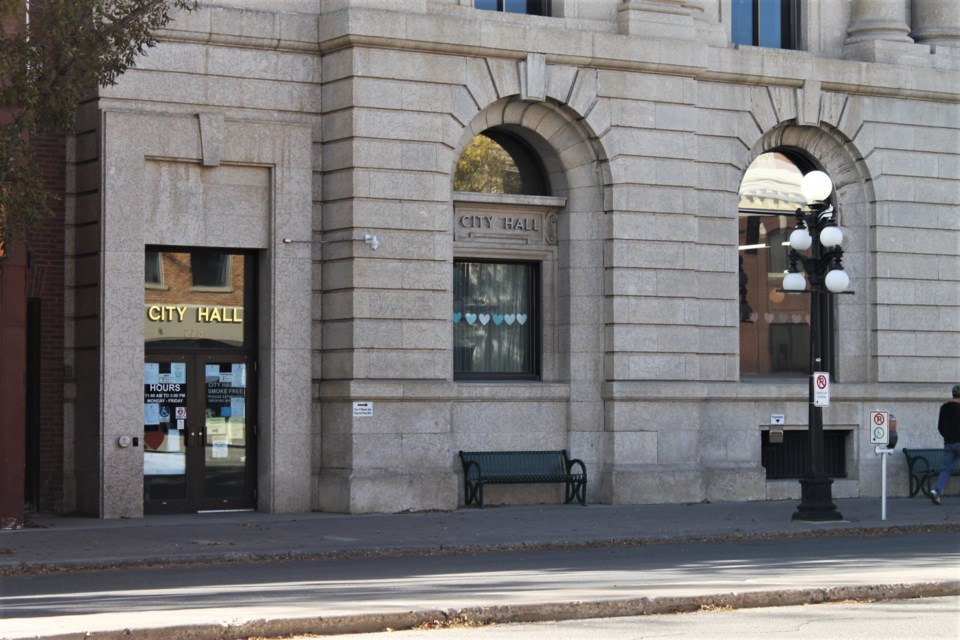The City of Moose Jaw’s investments generated nearly $10 million last year for operations, but without that funding, a tax increase of over 33 per cent would have been required to replace this revenue.
The municipality had $115.5 million invested in its medium- and long-term portfolios last year, up from $112.2 million the year before, a city council report said. The city earned $9.8 million from those investments in 2020, equivalent to 33.45 percentage points of municipal taxation.
The overall investment returns last year were 9.92 per cent for the long-term portfolio and 6.46 per cent for the moderate-term portfolio.
“These are certainly significant earnings being realized by our reserve and our community is benefitting,” finance director Brian Acker said during a recent city council meeting, adding these earnings and the reserve accounts ensure taxpayers contribute less money toward municipal operations than is necessary.
Coun. Heather Eby was impressed with the earnings and pointed out that they are necessary to ensure a massive tax increase isn’t required to make up the difference.
“Hardly a month goes by that someone doesn’t question me about the reserves. Why don’t we spend them, spend them, spend them?” she said. “This proves that these are the workhorses of Moose Jaw and are providing us with income each and every year … . (This) is a good news story.”
The amount of money in the reserves and the income generated from those portfolios were part of Acker’s report about the 2020 audited financial statements.
Long-term debt
As of Dec. 31, 2020, the City of Moose Jaw had long-term debt of $54.6 million, which is down from $59 million the year before because of the repayment of borrowed funds, said Acker. A comparison of long-term debt for five Saskatchewan cities shows:
- Moose Jaw: $54.6 million
- Swift Current: $79.4 million
- Prince Albert: $22 million
- Regina: $292.9 million
- Saskatoon: $331.4 million
Tangible capital assets
Tangible capital assets are recorded at face value and are amortized — written off gradually — over their lives, Acker said. Overall, the municipality had $320.7 million in non-financial assets — up from $302.7 million in 2019 — that will benefit the city in the future. However, these assets will be depleted over time by being used to deliver various programs and services.
“The majority of our dollars are going into underground and other networks (at $143 million), so that’s us fixing what you can’t see,” he said.
The total accumulated surplus for Moose Jaw — including financial and non-financial/infrastructure assets — is $403 million.
City hall spent $32.9 million last year on the acquisition of tangible capital assets — physical infrastructure — which is significant since the municipality was spending $8 million several years ago on infrastructure upgrades, continued Acker. However, that amount will likely level off in the future since city administration doesn’t expect to spend $33 million every year.
“We are in catch-up phase (with upgrading infrastructure) and are seeing that in the overall expenditures,” he added.
Municipal taxation per capita
Moose Jaw residents pay some of the lowest taxes in Saskatchewan compared to five other cities, said Acker. Numbers for municipal taxation, population, and taxation per capita show:
| Municipality | Taxation | Population | Taxation Per Capita |
| Moose Jaw | $29.2 million | 33,890 | $863.83 |
| Swift Current | $19.6 million | 16,604 | $1,184.57 |
| Prince Albert | $39.3 million | 35,926 | $1,094.87 |
| Saskatoon | $269.3 million | 246,376 | $1,093.25 |
| Regina | $284.7 million | 215,106 | $1,323.72 |
Council later voted to receive and file the report.
The next regular council meeting is Monday, July 26.




